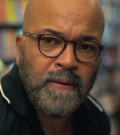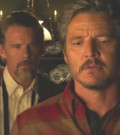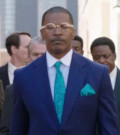By Seán Francis Condon
 Only two or three years ago, a film with five committed and lauded actors confronting their own foibles and inabilities to deal with reality would have been a relatively easy sell, the names on the marquee enough to generate studio excitement and widespread audiences.
Only two or three years ago, a film with five committed and lauded actors confronting their own foibles and inabilities to deal with reality would have been a relatively easy sell, the names on the marquee enough to generate studio excitement and widespread audiences.
In today’s world of superheroes, getting the likes of Christopher Walken, Catherine Keener and Philip Seymour Hoffman to appear in the drama A Late Quartet isn’t quite enough. This is where the importance of the Toronto International Film Festival comes in.
“It’s what I hear,” twice Oscar-nominated Keener, taking a rooftop corner at a downtown Toronto nightclub in the welcome, late-arriving cool of Canadian September. “I think Toronto has definitely – since I’ve been coming here – the prestige has definitely gone up and up with this festival. It’s always been a really good, solid festival. But now – I’ve just seen the transition. Like with Sundance. When I was first there it was 1991 or something. It really wasn’t anything to speak of. It was wonderful for me, but what it’s become: It’s so important. For example, first-time film-makers can make their next movie out of something. And this can have a tremendous impact on it.”
“Yeah,” agrees Walken, hauling over a large coffee and settling in next to his co-star. “And also, the kind of movie, what it’s about – it’s not a movie that, let’s say ‘Honey, let’s take the kids.’”
“To the drive-in and watch it, for example,” says Keener, laughing.
“Yeah: ‘Let’s take the kids to A Late Quartet,’” Walken follows up. “Though it could happen. I think a movie like this, it’s not for” – he pauses for a second – “everybody, I guess.”
A Late Quartet is about four adults, for starters. Five, if counting the emergence of Imogen Poots as Alexandra – daughter of Hoffman and Kenner’s married quartet characters, Robert and Juliette – as a suddenly self-willed force. Robert and Juliette are half of a famed chamber quartet that has been together 25 years, but that future is suddenly challenged when Walken’s mentor member Peter discloses that he has Parkinson’s Disease and may only have one farewell concert left in him.
From there, all the denials and passive-aggressive existence that got everyone through those years is opened like a wound. Quartet member Daniel (Mark Ivanir) has been the caretaker who suddenly finds himself in a question of authority, and Juliette, in particular, has the hardest time dealing with the disappearance of a father figure, the delayed realities of a non-functional marriage, and the loss of influence on her daughter.
The film is the first dramatic feature for writer-director Yaron Zilberman, a long-time fan of both chamber music and the New York environment from which A Late Quartet spawns. Zilberman’s previous feature, the documentary Watermarks, centred on women from Vienna’s Hakoah swim team during the rise of fascism in Austria in the 1930s.
For Walken – who has become engraved legend among film fans, for everything from his suicidal turning point in 1978’s Oscar Best Picture The Deer Hunter to standout performances in Batman Returns, True Romance and Pulp Fiction, to dancing solo in a Fatboy Slim music video – A Late Quartet is a case of the veteran actor kind of playing it straight.
“The guy I said to here, earlier on,” Walken muses, “I felt that unlike a lot of parts I’ve played, that this guy was really more like me than usual. He was from where I came from. I am a real New Yorker, born there, and I grew up with smart, talented people. My connection to the part really was the performance aspect.
“Whether you’re a dancer or an actor or a member of a string quartet, the thing you have in common is that the curtain goes up and there’s a thousand people there, and they bought a ticket. And you perform. I think performing is something that only people who do it, really understand. So that you get in front of an audience, and you really are at home.”
“Yeah,” agrees Keener. “It was within that community. It’s like – exactly.”
“You’re standing on a stage in front of people and, you know, showing off,” Walken says. “Whether you’re in the circus or in a string quartet, that element – you have that in common.”
Tags:
Catherine Keener, christopher walken, master, themaster, tiff, TIFF2012







Comments: